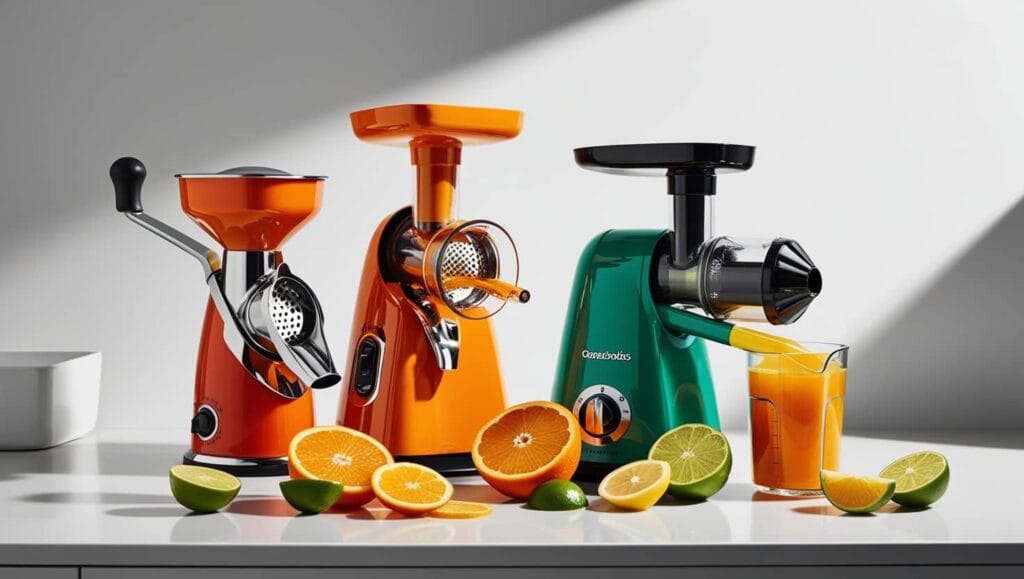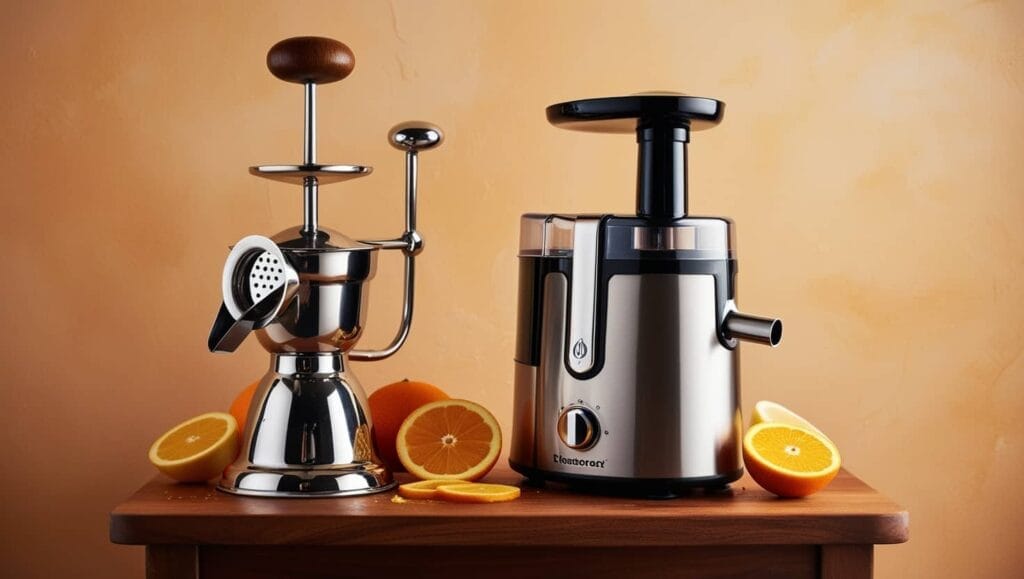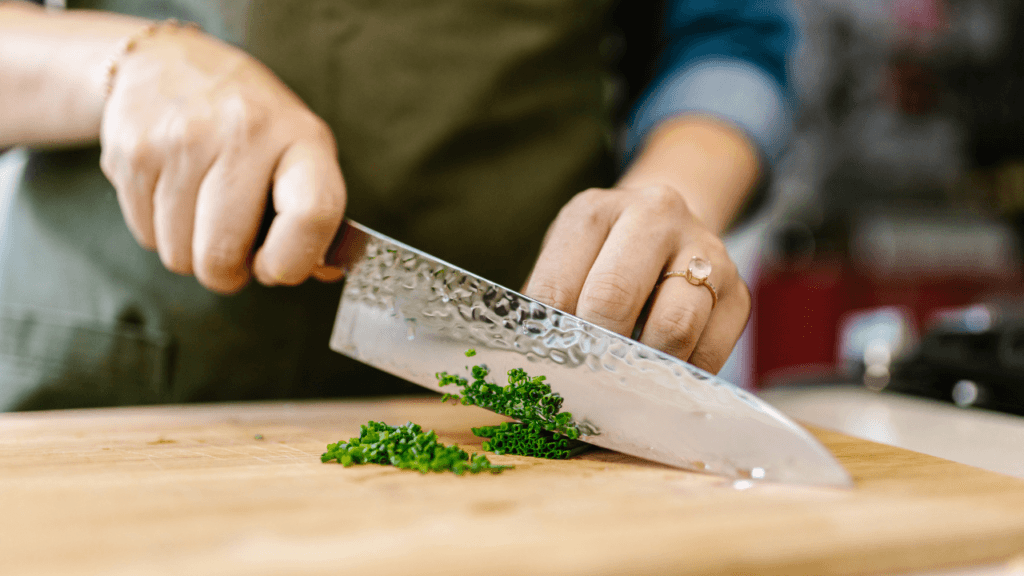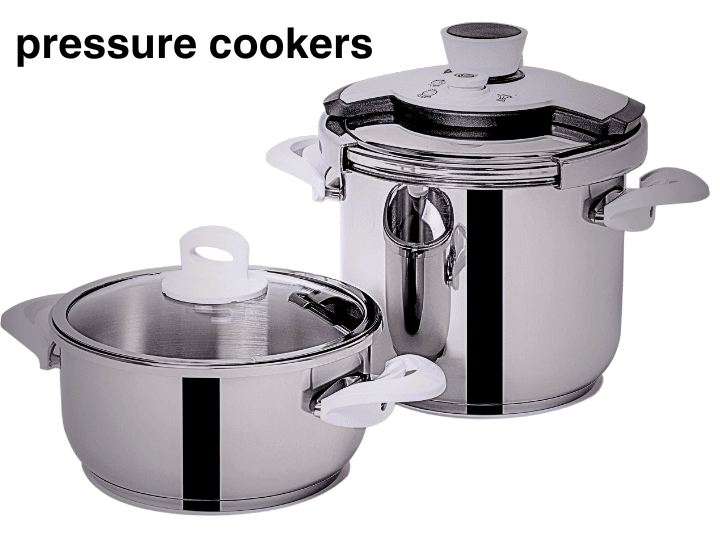If you’ve ever wanted a fresh glass of orange juice or a zesty lemonade, you know how great it feels to squeeze that juice straight from the fruit. But with so many juicing options available, how do you know which juicer is the best for you?
In this guide, we’ll walk you through the differences between manual and electric citrus juicers, helping you make the right choice based on your needs, preferences, and lifestyle.

Contents
- 1 What is a Manual Citrus Juicer?
- 2 What is an Electric Citrus Juicer?
- 3 Key Differences Between Manual and Electric Citrus Juicers
- 4 When to Choose a Manual Citrus Juicer
- 5 When to Choose an Electric Citrus Juicer
- 6 Factors to Consider Before Making Your Decision
- 7 Conclusion: Which Juicer is Right for You?
What is a Manual Citrus Juicer?
A manual citrus juicer is a tool that requires your hands to operate. These juicers are simple, yet effective, and typically come in two common forms: hand press juicers and reamer-style juicers.
- Hand press juicers allow you to place the fruit in the juicer and apply pressure manually to extract the juice.
- Reamer-style juicers have a pointed, cone-shaped reamer that you twist into the citrus fruit to get the juice out.
Benefits of Manual Citrus Juicers:
- Simple to use: No complicated buttons or electric parts—just press, twist, and squeeze.
- Compact and portable: They don’t take up much space in the kitchen, making them perfect for small kitchens or for people who don’t juice often.
- Easy to clean: Without any electrical components, manual juicers can be quickly cleaned by hand.
What is an Electric Citrus Juicer?
An electric citrus juicer is powered by electricity, making it more automated and less labor-intensive than its manual counterpart.
These juicers typically use either a centrifugal mechanism, which quickly spins and extracts juice, or a rotating juicer that uses a motor to spin the citrus and extract juice automatically.
Benefits of Electric Citrus Juicers:
- Speed and convenience: They’re perfect for when you need juice in a hurry. Simply press a button, and the juicer does the work.
- Consistent results: Electric juicers often yield more juice with less effort and give you more consistent results each time.
- Great for larger batches: Ideal for families or people who regularly juice large quantities of fruit.
Key Differences Between Manual and Electric Citrus Juicers
Let’s break down the main differences to help you choose the right one for your needs:
- Ease of Use: Manual juicers give you full control over the juicing process, but they require more effort. Electric juicers, on the other hand, are hands-off and faster, but they may need more space and are heavier.
- Speed and Efficiency: Electric juicers are much faster, handling multiple fruits in minutes. Manual juicers are slower and require you to squeeze one fruit at a time.
- Juice Yield: Electric juicers usually extract more juice from each fruit due to their automated mechanisms, whereas manual juicers might leave a bit more juice behind.
- Ease of Cleaning: Manual juicers are easier to clean, with fewer components to worry about. Electric juicers, while efficient, may require more time and attention when cleaning due to the motor and other parts.
- Portability and Storage: Manual juicers are lightweight and easy to store, while electric juicers are bulkier and need more counter space.
When to Choose a Manual Citrus Juicer
A manual citrus juicer is a fantastic option for:
- Occasional juicing: If you only juice every once in a while, a manual juicer will meet your needs without taking up much space.
- Personal servings: Great for small amounts of juice, like a glass for yourself in the morning.
- Compact kitchens: If you’re low on counter space or don’t want to store a big machine, a manual juicer is easy to tuck away.
- Eco-friendly choices: Manual juicers don’t use electricity, making them more eco-friendly and cost-effective.
When to Choose an Electric Citrus Juicer
An electric citrus juicer is best if:
- You juice regularly: If fresh juice is part of your daily routine or you want to juice in larger quantities, an electric juicer will save you time and effort.
- You have a family: For households with multiple juice drinkers, an electric juicer can quickly serve up enough juice for everyone.
- You prefer convenience: If you’re looking for something that’s fast and easy, electric juicers are the way to go. Just load the fruit, press a button, and you’re done.
- You need higher juice yields: Electric juicers typically extract more juice from each fruit, so if you want to make the most out of your produce, this is a great choice.
Factors to Consider Before Making Your Decision

Before you make your final choice, think about these factors:
- Frequency of Use: If you juice every day, an electric juicer is a solid investment. If you only juice occasionally, a manual juicer may be all you need.
- Type of Fruit: Do you only juice citrus fruits, or do you want a juicer that can handle other fruits like apples or carrots? Electric juicers might offer more versatility.
- Budget: Manual juicers are generally less expensive than electric models. However, an electric juicer can save you time and effort, making it a worthwhile investment for regular juicers.
- Space: Consider how much counter space you have. Manual juicers are compact, while electric juicers can take up more space.
- Cleaning: Some people prefer manual juicers for their easy cleaning. Electric juicers require more maintenance due to the motor and moving parts.
Conclusion: Which Juicer is Right for You?
Ultimately, the choice between a manual and electric citrus juicer comes down to your specific needs and preferences. If you’re looking for a simple, compact juicer for occasional use, a manual juicer is a great choice.
But if you want speed, efficiency, and the ability to juice in larger quantities, an electric juicer is the better option.
Take into account how often you juice, how much space you have, and how much time you’re willing to invest in the process. Whatever you choose, both manual and electric juicers offer fresh, delicious juice that can be enjoyed in the comfort of your home.



